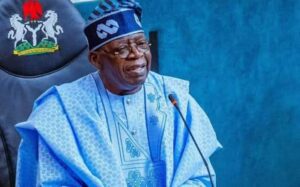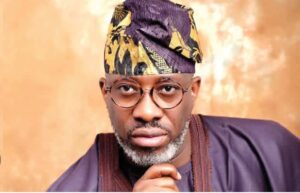Electronic voting is the answer to election malpractices – Jega
By SAKA Laaro, Ilorin
The Former Chairman, Independence National Electoral Commission (INEC) Prof Attahiru Jega during the weekend said that constitutional provision that prohibits use of technology is a militating factor against electronic voting in the country.
He therefore urged the National Assembly to remove the legal encumbrance for electronic voting to be possible.
Prof Jega also blamed the National Assembling for opposing the use of electronic transmission of results, arguing that the method is cost-effective and easier to deploy.
The Political Science Professor said this in Ilorin, Kwara State in a lecture organised by Kwara Visioners Network for Rural Development.
The lecture was entitled: “Politics, governance and leadership recruitment in 21st century democracy.”He said,
“The National Assembly after 2019 elections promised to review the electoral legal framework which will to improve the integrity of the electoral commission.
“The most important issue that can add value to the integrity of elections they are jettisoning that because of self-serving interest. We have upscaled the integrity of the Nigerian electoral commission with incremental use of technology.
“Now we have got to a point where the pilot scheme that has been done in INEC since 2012 of using electronic transmission of results INEC in itself said it can rarely use it in the 2023 elections. In fact, INEC has used it in some elections in parts of the country. It is a pilot scheme which all the stakeholders have been observing and said it is good.
“The next thing is to remove the major hindrance in the use of technology, because there is a constitutional provision which says that electronic voting is prohibited.
“Many Nigerians who are in support of electronic voting are blaming INEC for saying it cannot use electronic voting. They have forgot that there is a legal provision that says electronic voting is prohibited.
Now people are hoping that the National Assembly will remove that encumbrance, not necessarily for INEC to plunge into electronic voting in 2023 but for it to identify the best electronic voting system for the country. People are also saying that electronic transmission of results is easier to deploy.
“It is most cost-effective compared with the use of electronic voting. So why not begin with the electronic transmission of results.
“On the one hand the lawmakers said that INEC is permitted to do electronic voting provided it does not do electronic transmission of results. In fact, what they are saying is that they are not allowing INEC to do electronic voting because they do not want electronic transmission of results.
“Unfortunately, the National Assembly is opposed to the use of electronic transmission of results. From my personal experience in INEC, one of the major ways in which the integrity of the electoral process is undermined is in the manual transmission of results from the polling units to ward, local and constituency levels.”
He added added that “If the electoral commission is impartial and tries hard to improve the integrity of the electoral process, if the dominant actors (political parties and candidates) lack integrity and want to win by either hook or crook, they will be undermining the integrity of the electoral commission.
“That is what we have seen. We cannot compare the elections of 2011, 2015 and even 2019 with 2007. We have gone some ways in lifting the bar, but a lot needs to be done to improve the integrity of the electoral process.”
Also speaking, ace journalist Babajide Kolade-Otitoju said that the controversy surrounding the use of electronic voting “is meant to ensure the people can not freely choose their own leaders if the fidelity of our elections is guaranteed the people will be able to choose the best for them. Where politicians feel comfortable to rig elections and willfully take away the independence of INEC, our national electoral body they would not feel that they are responsible to the people. There’s nothing so bad for the people than to realise that their votes do not count or that politicians can win elections in spite of the voter.”




